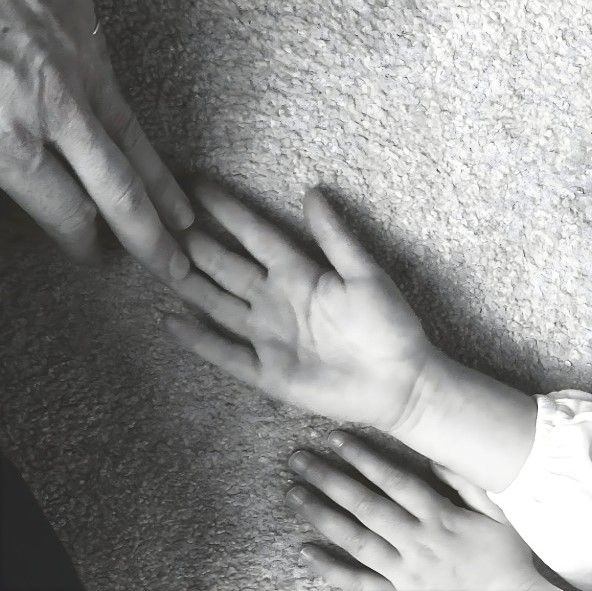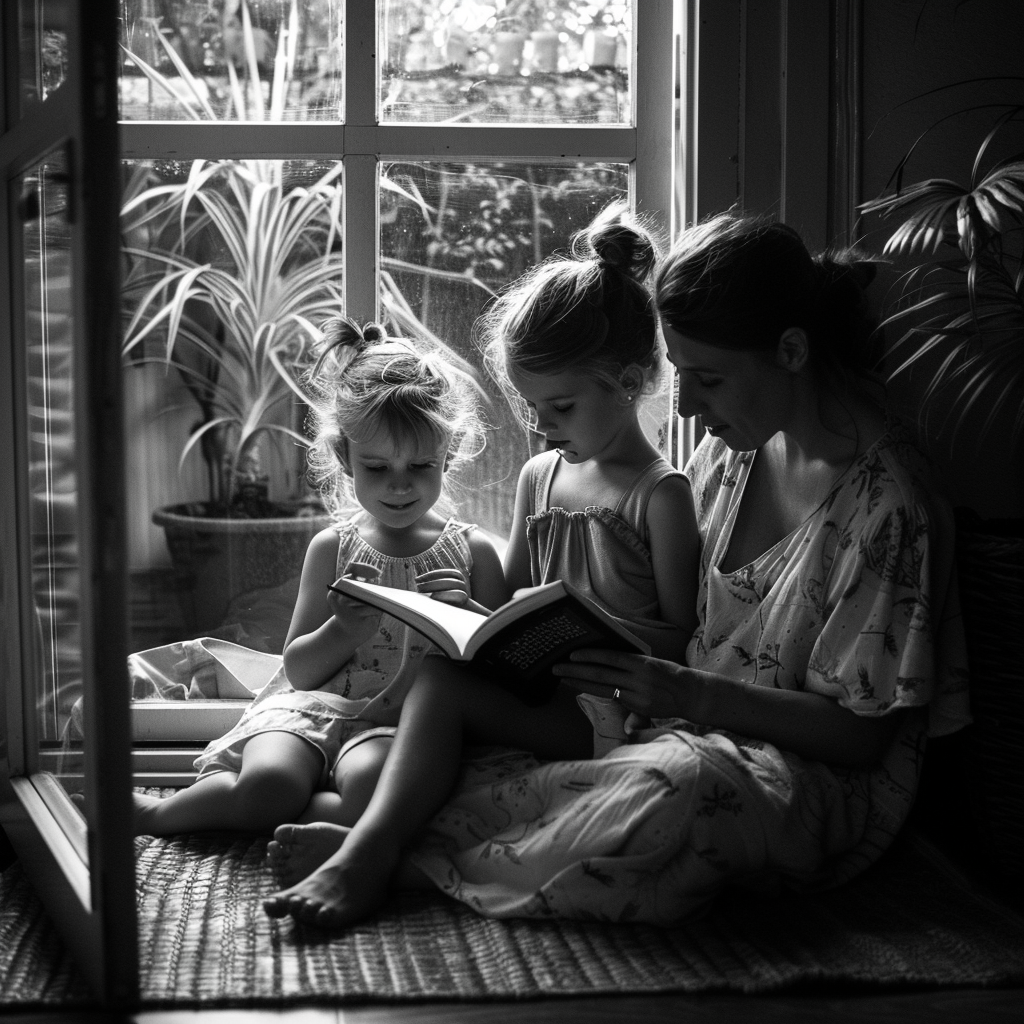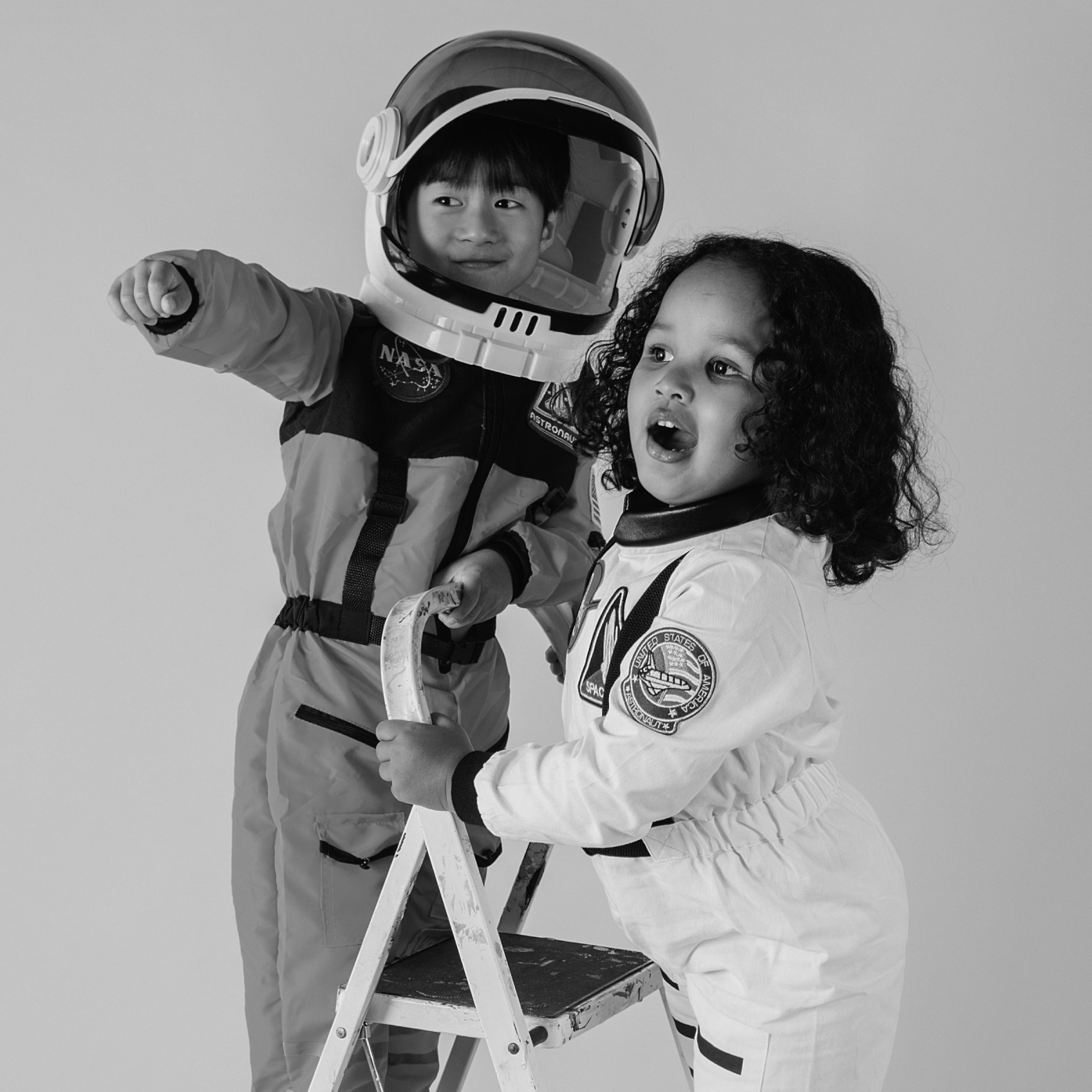
MENU


Often, we find ourselves worrying and thinking, “Oh no, my child is sick, or I can see it coming.” The fear of falling ill is a natural part of being a parent. What astonishes both me and my daughters is the incredible power and resilience of our bodies in fighting viruses and bacteria. When my daughter expressed her fear of getting sick, I realised that she had picked it up from me and decided to make a conscious effort to change my perspective on illness.
What could we learn from sickness? I took it as an opportunity to listen to my body. What do I feel when one of my daughters is in pain and where do I feel it? This exercise helps me to come back to the present moment and understand I am not as bad as my brain is telling me. It is also an opportunity to think about the concept of care. According to the dictionary, “care” can be defined as providing attention, support, and assistance to ensure the well-being, safety, and satisfaction of someone or something. It involves being considerate, compassionate, and responsible in meeting their needs.
In critical situations, we can feel overwhelmed and stressed, unsure of what to do. I realised that by simply becoming aware of my own body and understanding my own feelings, I could better focus on the essence of care, which is compassion. When my daughter was lying on the floor, feeling sick, and I knew we did everything we could do (medicines, healthy drinks, sleep) what remained is being present. Being present by holding her little hands, whispering soft words, and witnessing the power of care.
These situations also instil humility within me. They remind me of the delicate balance between fragility and strength that life presents. They reinforce the importance of being there for one another. When our children fall ill, it becomes an opportunity to appreciate the power of conversations, to recognise why we should take good care of our own bodies, and to experience the beauty of being with someone who cares for us or whom we care for.
Every week, we will post a short blog relating to the concept of attention, the latest scientific developments around it, or our updates about our own progress here at Lifeverse!
 Sign up to the blog
Sign up to the blog
If you have an interesting idea that relates to attention, or if you do research on attentional processes and would like your work to be featured on our blog, please reach out - we are always happy to collaborate with brilliant minds from across fields and disciplines!
 Pitch us an idea!
Pitch us an idea!



Distractions were crucial for the survival of our species, helping us react quickly to potential dangers. However, in today’s world, constant notifications hinder our ability to maintain prolonged concentration. In this article our expert emphasizes Cal Newport’s concept of a “deep life” about the importance of focusing on tasks with minimal distractions, whether it’s work or personal activities.
Our working memory, powered by the prefrontal cortex, is essential for planning, organizing, and reasoning. Despite this capability, we often fall short of our goals due to interruptions like notifications. The author shares a personal experiment of limiting WhatsApp usage to reduce stress and improve presence with their daughters, and highlights the importance of managing distractions to enhance productivity and presence.



On this new post our expert explores the concept of attention from a multidisciplinary perspective, pondering its definition, measurement, and significance. It suggests that attention is akin to love, both for oneself and for others. Attention, when fully engaged, enhances experiences and facilitates deeper understanding.
The article draws parallels between attention and acts of caring, such as listening to loved ones. It argues that true attention is essential for experiencing and expressing love. Ultimately, it proposes that exploring attention is synonymous with exploring the capacity for human love, both self-love and love for others.



This article explores the unique types of attention parents develop, particularly those dedicating substantial time to their children. Identifying two distinct attention modes—focused and rote—the author reflects on the challenges and engagement levels associated with each. Drawing from personal experiences, the author discusses the pursuit of achieving a state of “flow” with one’s children, akin to the immersive state described by psychologist Mihaly Csikszentmihalyi.
The narrative also touches on concerns about diminishing self-regulation in a screen-dominated world, referencing a study’s findings on the impact of screens on children’s self-control.




We shared a personal experience with a five-year-old children, exploring the art of observation and learning through a simple carrot. Embracing Feynman’s approach and impactful lessons from “What Do You Care What Other People Think?”, we aimed to make learning enjoyable and engaging. We highlighted the significance of understanding beyond names—embracing the curiosity to observe and explore. Join us on this incredible journey of exploring the wonders of how the brain learn!




The statements “Everyone knows what attention is” (James, 1890) and “No one knows what attention is” (Hommel et al., 2019) may seem contradictory, but they can coexist. William James refers to a common, intuitive understanding of attention, seen in everyday phrases like “give me attention.”
On the other hand, Hommel and colleagues highlight the evolving and sometimes contradictory scientific accounts of attention. While lay individuals agree on what attention is, scientists can have ongoing debates.




How can caregivers master the art of observing children? What can we learn by simply following a child’s natural instincts and development? And how does that challenge traditional approaches to education?
This blog post offers some thoughts and reflections from parents, a Montessori guide, and a paediatric neurologist on these questions!


Distractions were crucial for the survival of our species, helping us react quickly to potential dangers. However, in today’s world, constant notifications hinder our ability to maintain prolonged concentration. In this article our expert emphasizes Cal Newport’s concept of a “deep life” about the importance of focusing on tasks with minimal distractions, whether it’s work or personal activities.
Our working memory, powered by the prefrontal cortex, is essential for planning, organizing, and reasoning. Despite this capability, we often fall short of our goals due to interruptions like notifications. The author shares a personal experiment of limiting WhatsApp usage to reduce stress and improve presence with their daughters, and highlights the importance of managing distractions to enhance productivity and presence.
Label
17-05-24

On this new post our expert explores the concept of attention from a multidisciplinary perspective, pondering its definition, measurement, and significance. It suggests that attention is akin to love, both for oneself and for others. Attention, when fully engaged, enhances experiences and facilitates deeper understanding.
The article draws parallels between attention and acts of caring, such as listening to loved ones. It argues that true attention is essential for experiencing and expressing love. Ultimately, it proposes that exploring attention is synonymous with exploring the capacity for human love, both self-love and love for others.
Label
09-04-24

This article explores the unique types of attention parents develop, particularly those dedicating substantial time to their children. Identifying two distinct attention modes—focused and rote—the author reflects on the challenges and engagement levels associated with each. Drawing from personal experiences, the author discusses the pursuit of achieving a state of “flow” with one’s children, akin to the immersive state described by psychologist Mihaly Csikszentmihalyi.
The narrative also touches on concerns about diminishing self-regulation in a screen-dominated world, referencing a study’s findings on the impact of screens on children’s self-control.
Science

06-03-24

We shared a personal experience with a five-year-old children, exploring the art of observation and learning through a simple carrot. Embracing Feynman’s approach and impactful lessons from “What Do You Care What Other People Think?”, we aimed to make learning enjoyable and engaging. We highlighted the significance of understanding beyond names—embracing the curiosity to observe and explore. Join us on this incredible journey of exploring the wonders of how the brain learn!
Science

06-02-24

The statements “Everyone knows what attention is” (James, 1890) and “No one knows what attention is” (Hommel et al., 2019) may seem contradictory, but they can coexist. William James refers to a common, intuitive understanding of attention, seen in everyday phrases like “give me attention.”
On the other hand, Hommel and colleagues highlight the evolving and sometimes contradictory scientific accounts of attention. While lay individuals agree on what attention is, scientists can have ongoing debates.
Science

12-01-24

How can caregivers master the art of observing children? What can we learn by simply following a child’s natural instincts and development? And how does that challenge traditional approaches to education?
This blog post offers some thoughts and reflections from parents, a Montessori guide, and a paediatric neurologist on these questions!
Science

13-12-23
If you have an interesting idea that relates to attention, or if you do research on attentional processes and would like your work to be featured on our blog, please reach out - we are always happy to collaborate with brilliant minds from across fields and disciplines!
 Pitch us a blog idea!
Pitch us a blog idea!
Every week, we will post a short blog relating to the concept of attention, the latest scientific developments around it, or our updates about our own progress here at Lifeverse!
 Sign up to the blog
Sign up to the blog